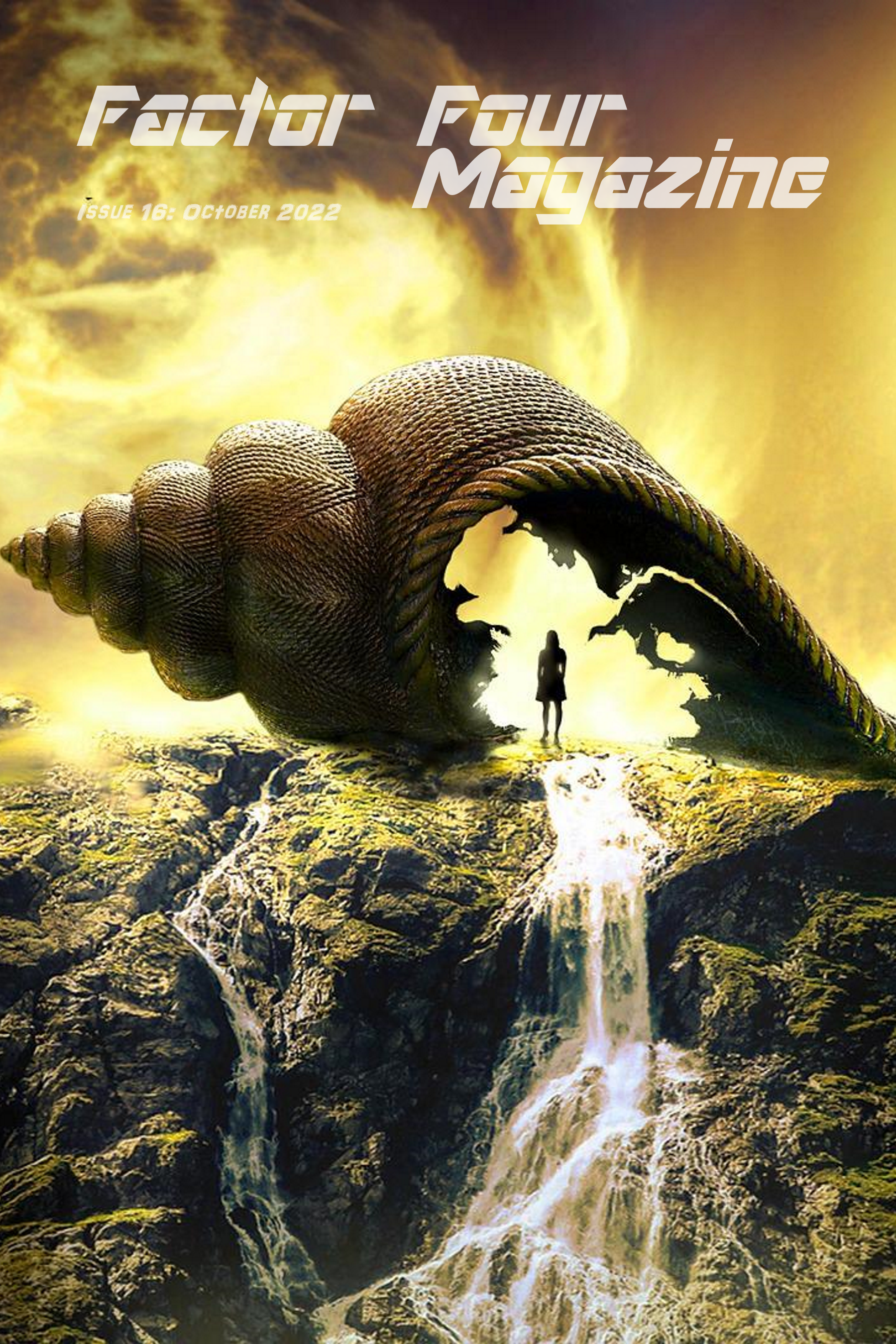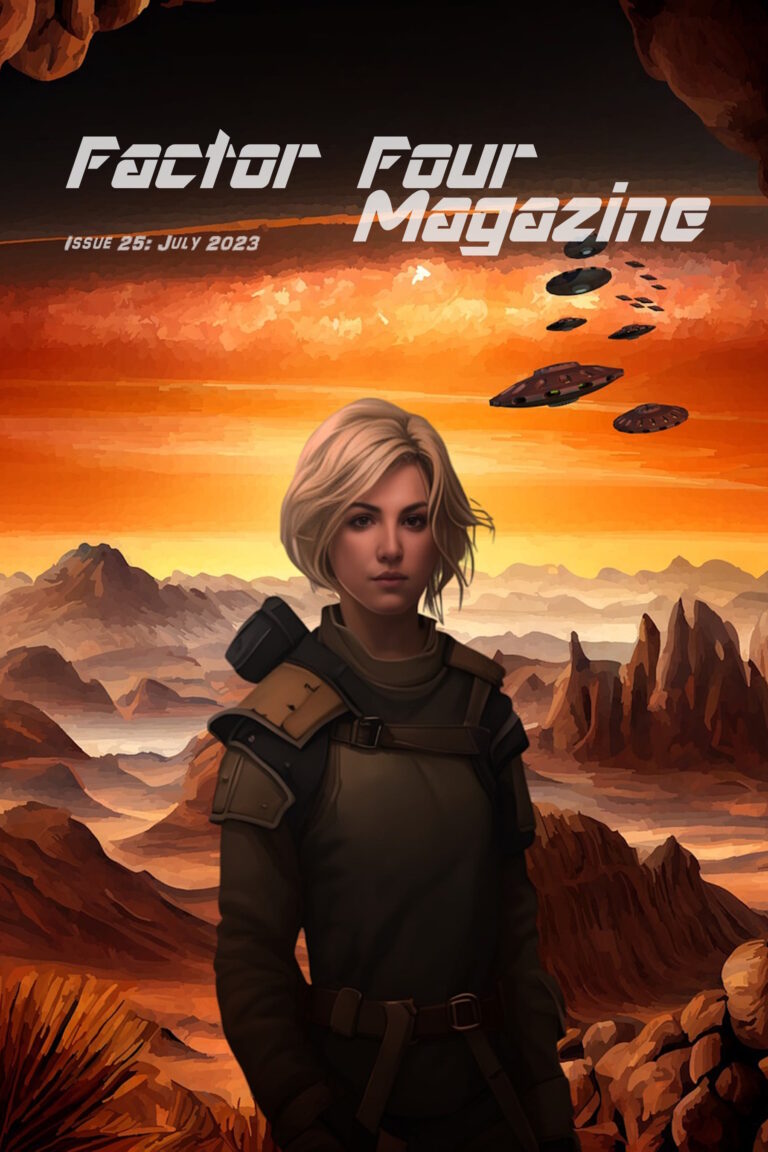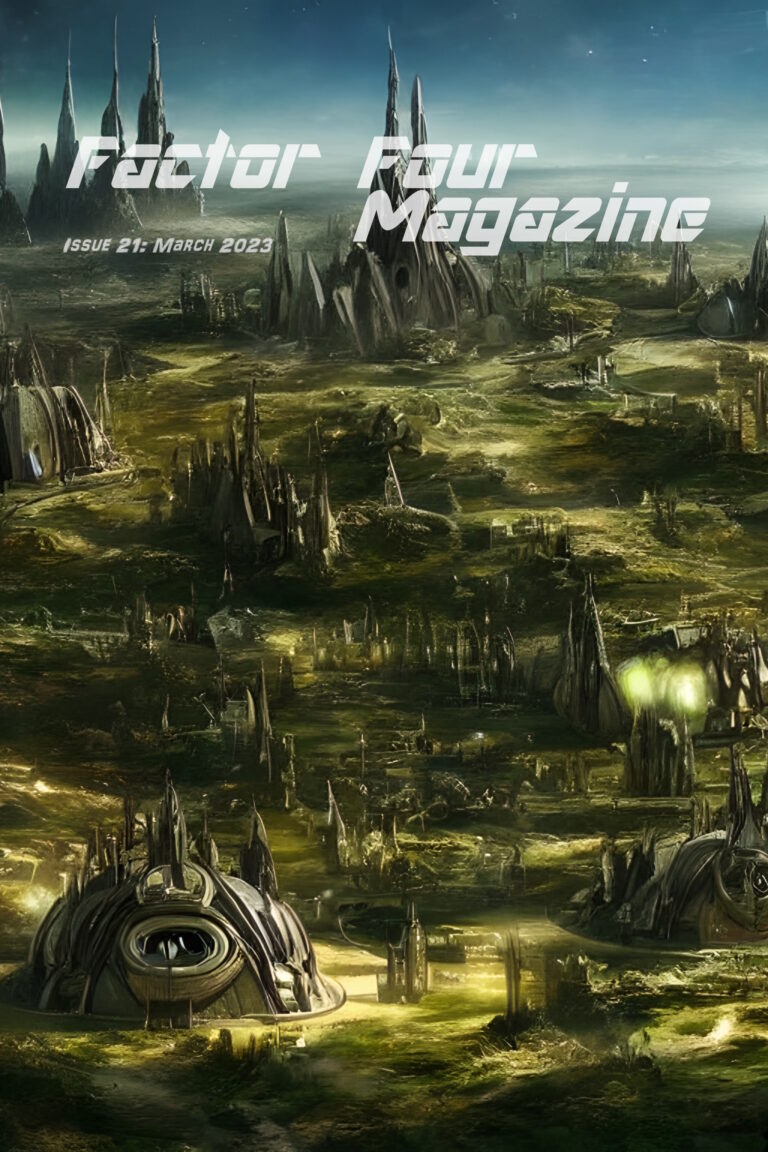The Inside of the Outside by Angus McIntyre

The house sat a little back from the road, its leaning porch and sagging roof giving it a slump-shouldered look. In the front yard, the rusted shell of a pickup perched on blocks amid an ocean of weeds.
Connor pulled his rented Acura off the road and studied the house for a while. Aside from a couple of hens scratching in the dirt, nothing moved.
He climbed out, picked his way along the overgrown path to the front door. It stood slightly ajar, revealing only darkness inside.
“Hello? Anyone home?”
A minute passed, and then he heard the soft slap of bare feet on board. The door opened.
The girl looked to be about fifteen or sixteen, lank dark hair framing a pale face, faded dungarees revealing thin arms dusted with freckles. They studied each other in silence.
“I’m looking for Jacob Hutchings,” Connor said at last.
The girl pulled the door a little wider. “Hutch!” she called into the darkness.
When Hutchings finally shuffled into view, the family resemblance was evident. He had the same long face as the girl, the same lean frame. A dense white beard spilled down the front of his coverall.
“Ah’m Hutchings,” he said. “You?”
“Keith Connor. They said you could help me.”
Hutchings jerked his head. “C’min.”
The interior of the house was cluttered with rusted tools and ancient furniture that breathed an odor of dust and damp as he passed. A television, perched on a stack of yellowed newspapers, was showing a football game, the screen a brilliant square of green in the gloom.
“Out back,” Hutchings said, gesturing Connor to follow.
“You know why I’m here?” Connor asked.
Hutchings turned to face him. “Only two things people come to me for,” he said, “You ain’t here for the one, you mus’ be here for the other.” He coughed, a dry rasping that shook his whole frame.
The back door of the house opened onto a yard in which Connor saw more weeds, more hens, and a pickup even older and rustier than the first. Behind them rose a red-painted wooden barn.
“In there,” the old man said.
After the chaos of the house, the interior of the barn was shockingly neat. There was something almost church-like about it, the walls whitewashed, the boards freshly swept and sanded.
“We knew you was comin’,” Hutch said, and Connor could not tell if it was a joke or a simple statement of fact.
In the center of the empty space stood a windowless wooden hut. The old man paused with his hand on the door.
“We do’em in here,” he said.
“I had a hard time finding you,” Connor said, as he followed the man inside. He looked around. The inside of the hut was as spartan as the outside. Four tall white candles stood in tin cups on the floor, beside a yellow box of salt.
“Yep,” the old man agreed. He bent over the candles, flicked a lighter that he pulled from the pocket of his coveralls.
“Not many left who do what you do,” Connor said.
“They’m dead,” the old man told him. He finished lighting the candles and picked up the salt.
“What’s that for?” Connor asked. The other straightened up and gave him a look of vague contempt.
“Make a circle,” he said. “Then them as you summon cain’t get out.”
“Does it work?”
“Aye,” Hutch said. “Well enough. Demons cain’t cross salt.”
Connor watched as the old man tilted the box and began pouring out the white crystals.
The resulting circle was surprisingly neat, the line of uniform thickness all round. The old man studied it, as if assuring himself of its near perfect roundness. Satisfied, he set the box down again.
“Is it big enough?” Connor asked.
“Et’ll do,” the old man said. He brushed his hands on the front of his coveralls. “Now — who you want to call?”
Connor hesitated for a moment. Finally he said a name.
The old man seemed to think for a while. “Five hundred,” he said at last. Wordlessly, Connor reached into his pocket and took out a billfold. He counted out the money and passed it to the old man, who tucked it away in his pocket.
The transaction completed, the old man began to chant in a low tuneless voice. There was something unpleasant about the sound, the words that might not be words blurring and blending into each other in a way that made his skin crawl. Without intending to, he took a step toward the salt circle.
The old man stopped. “Don’t break ‘et,” he warned, then resumed his chant.
At last, his voice trailed off. The interior of the salt circle remained resolutely empty.
They looked at the empty circle in silence. At last the old man shook his head and frowned. “‘spose you’ll be wanting your money back.”
Connor smiled. “No need,” he said in a voice as smooth as honey. “I am here. You called, and I came.”
The old man took a step backward. “You,” he said. The candles threw horned shadows on the walls of the wooden hut.
“My brothers and I are tired of your kind,” Connor whispered. “Tired of answering to your petty summons.”
The old man took another step back. “You’re the one killed the others,” he said.
“Yes,” Connor said. He grinned wide, revealing his teeth. “All but you. And now —“
The old man held up a wrinkled hand. “Something you might want to see first,” he said. He pushed open the door of the hut and pointed. Reluctantly, Connor looked in the direction indicated.
The girl stood outside the door, a box of salt in her hand. At her feet lay a curving line of white crystals, an outer circle of almost geometric perfection.
Connor turned back to the old man, who stood now inside the inner circle.
“You —“ he began.
The old man smiled. “We knew you was comin’,” he said.




